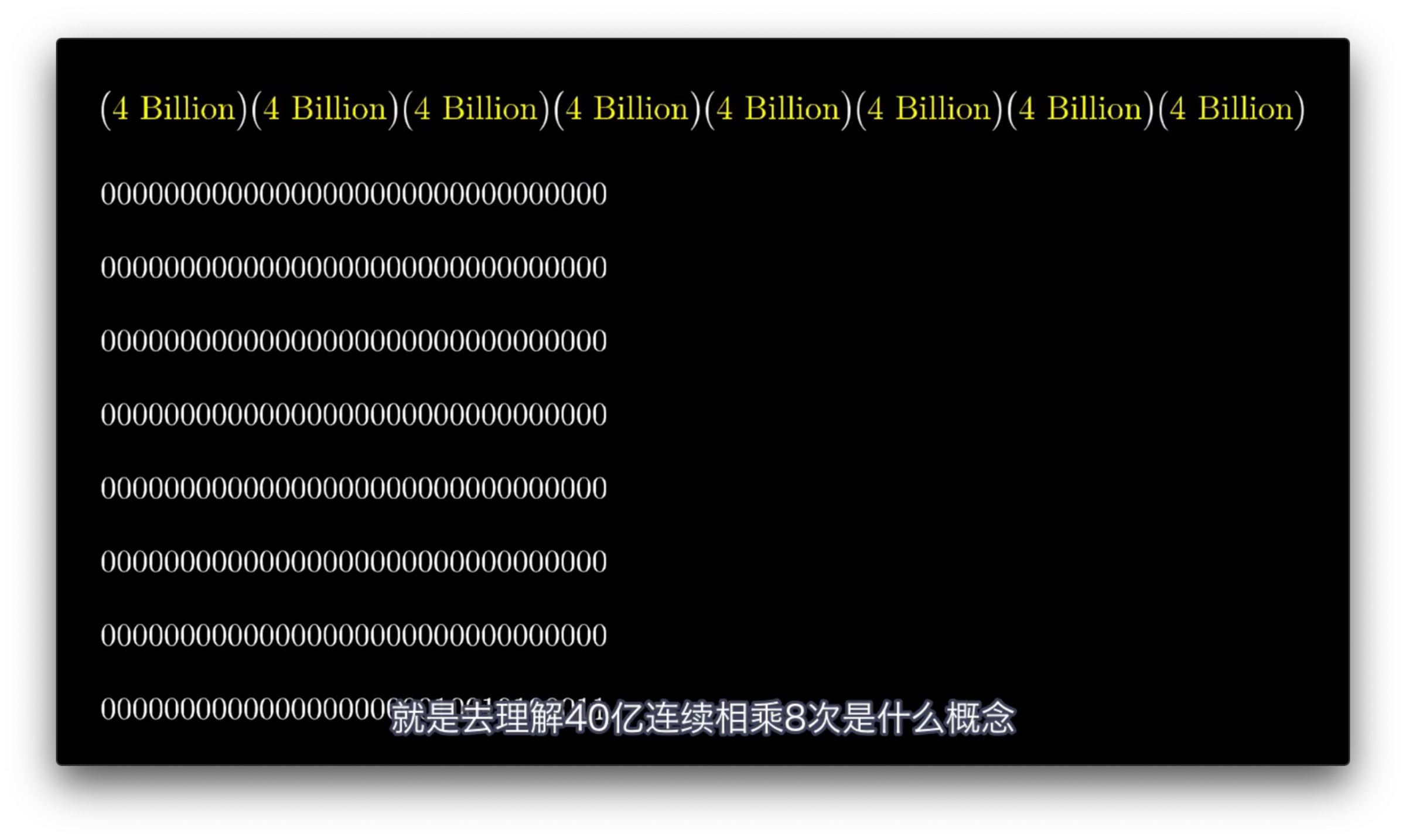Science | The total number of Bitcoin private keys is 2 to the power of 256. How big is this number?
Source: 3Blue1Brown
Translation: Cobo Wallet
When creating a digital asset wallet, a private key is generated. There are 2 256 possibilities for randomly generating a private key. Everyone says that the power of 256 is a very large number. But I am a real person. What is the concept of 256 to the power of 2? How big is it?
(2 to the power of 256) This number is much larger than our usual number, so it is difficult for people to have a concept, but we can try it.
- Layer 3 middle layer: a new engine for Web 3.0 development?
- Deputy Director of the Institute of Finance of the Development Research Center of the State Council: Opportunities and Challenges of Digital Currency
- Deep Analysis | How to Obtain Alpha in Crypto Market Investment
The 256th power of 2 is also the 32th power of two 2s.
2 ^ 256 = 2 ^ 32✖️2 ^ 32✖️2 ^ 32✖️2 ^ 32✖️2 ^ 32✖️2 ^ 32✖️2 ^ 32✖️2 ^ 32
The 32 to the power of 2 is about 4 billion-is this a concept? It's the kind of numbers that appear in news headlines.
So what we have to do is to understand the concept of 4 billion consecutive multiplications 8 times.
4 billion✖️4 billion✖️4 billion✖️4 billion✖️4 billion✖️4 billion✖️4 billion✖️4 billion

The first 4 billion: The GPU in the computer can quickly perform a large number of parallel operations. If you specifically let the GPU repeatedly calculate the password hash function, a high-performance GPU may calculate nearly 1 billion hashes per second. If you cram such a bunch of GPUs into a computer and let the computer calculate 4 billion hashes per second, then the first 4 billion represents-the number of hashes calculated per computer per second.
The second 4 billion: Imagine 4 billion computers full of GPUs. Using Google as a comparison, although Google does not disclose the number of external servers, some people estimate that there are several million. In fact, the computing power of most Google servers is not as good as those of our computers full of GPUs. We assume that Google has replaced all of its millions of servers with such computers, and then 4 billion computers are equivalent to about 1,000 such Google-powered Googles-calling this computing power "Thousands of Google".
The third 4 billion: There are about 7.3 billion people in the world. Assuming more than half of them have their own Google,
Fourth 4 billion: Then, imagine 4 billion of these planets. Using the Milky Way as a comparison, the Milky Way has about 100 to 400 billion stars, so this is equivalent to 1% of the Milky Way galaxy has an earth, and half of the people on this earth have their own Google.
Fifth 4 billion: We call 4 billion such galaxies "billion galaxy supercomputers", which can calculate 160 powers per second.
Sixth and Seven 4 billion: 4 billion seconds is equivalent to 126.8 years, and its 4 billion times is 507 billion years-almost 37 times the age of the universe.
So even if you have:
Full GPU, thousands of Google, planets gathering, billions of galaxy computers
Constantly guessing the last 37 times the age of the universe, there is only one in 4 billion chances to get the correct answer (the eighth 4 billion).
We will continue to update Blocking; if you have any questions or suggestions, please contact us!
Was this article helpful?
93 out of 132 found this helpful
Related articles
- One article about Ethereum's "Ice Age": this could be the last delay
- Atlas of Chinese Blockchain Listed Companies (2019)
- Observation | The Last Public Chain: Who is the Last King?
- Discussion: The Future of Open Finance, Public Chain and Alliance Chain
- A man who knows cryptocurrencies better than Xiaozha forms the Blue Sky team and wants to "rule" decentralized social media standards
- Brand value on the chain, Nike blockchain anti-counterfeiting patents can still play like this?
- New York Department of Financial Services (NYDFS) plans to update BitLicense terms for the first time in 5 years, currency exemption list + listing template





